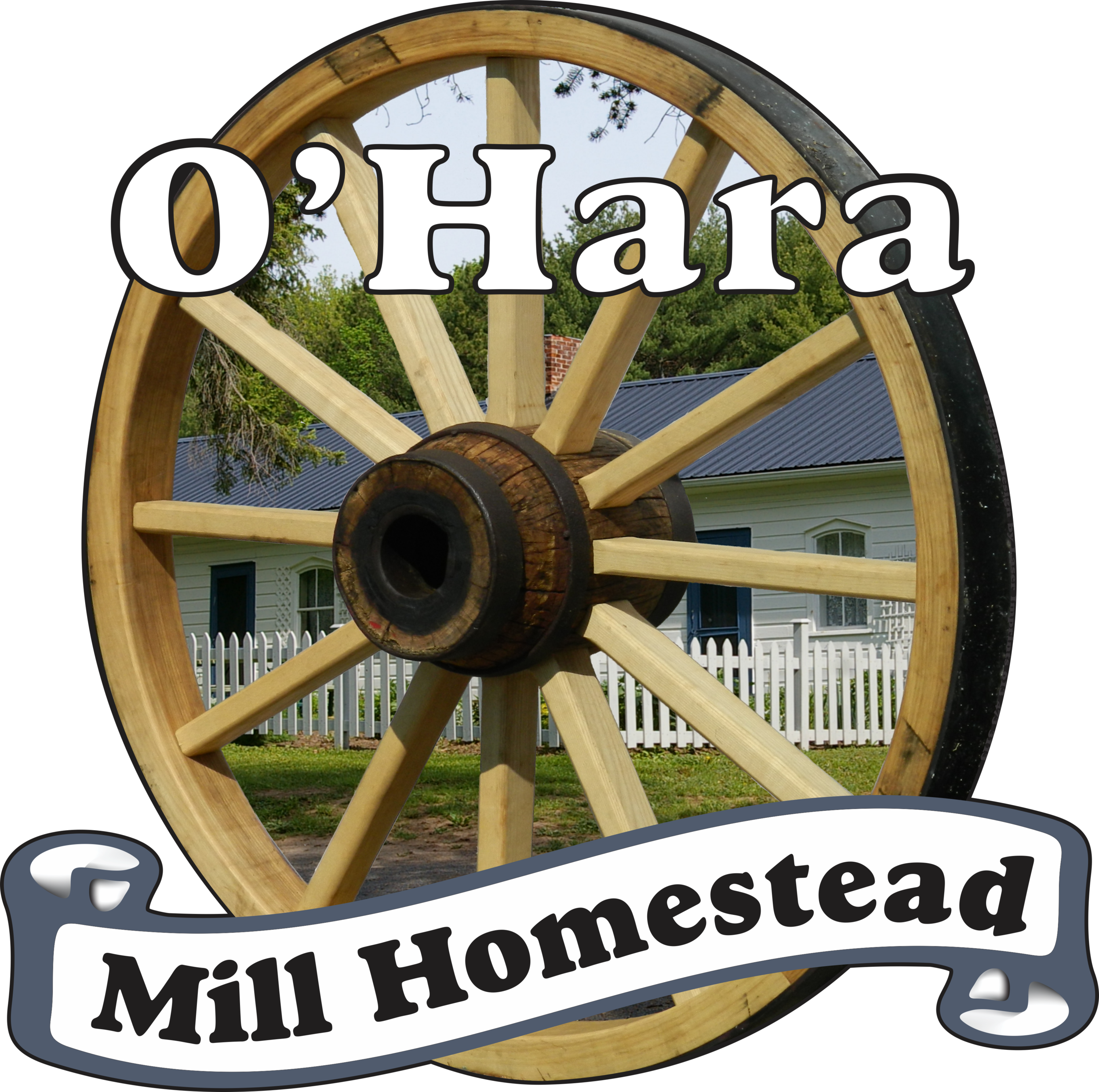Herbal Care.... for Livestock!
Herbal medicines have been used throughout the entirety of history, but from our experience it’s always in reference to humans. We have quite an herb garden here on the O’Hara homestead, filled with many species that are remedies for various ailments. We found an article in a farmer’s journal talking about how to use these herbs to care for your livestock!
We feel the need to put our disclaimer before we get into the bulk of the article; we are not experts, we do not know the accuracy of these articles as the farmer’s journals are quite old. Please, please, please do your own research before replicating anything or feeding these herbs to your animals!
Back in the 1800s, there vets were not as readily available as they are today. Even now it can be hard to get a large animal vet to your farm. Farmers like the O’Haras likely wouldn’t even have a vet as they were some of the first families to settle in an area. This meant all the knowledge about animal care they brought with them, was all they had. Knowing what to do when a farm animal gets sick could mean the difference between life and death for an early settling family, so it was important to treat them with great care.
For livestock that are not free-foragers; the farmer’s journal recommends providing a “salad'“ of sorts alongside their regular feed to promote self-selection. Most animals are able to know what they need, much like how your dog will eat grass when its stomach is upset to help them vomit. These “salads” should not be the only thing you are feeding your livestock as you can have too much of a good thing. Administering herbs to your livestock takes a great expanse of knowledge, this blog post simply serves as a gateway into herbal care for your livestock. We’ll break it down by type of livestock;
poultry
Chickweed: rich in minerals and fats, also easy to digest
Chili Peppers: chickens lack the capsaicin receptors necessary to detect spice making peppers a yummy treat that act as a natural antibiotic
Comfrey: high in protein, vitamins B12, A, and C, potassium, calcium, and so much more!
Dandelion: can act as a natural blood detox and a natural diruetic that can help control flock parasites
Spinach: good source of iron an other minerals, but too much oxalic acid contained within can lead to soft-shelled eggs
Sprouted Oats: sprouted as opposed to regular oats makes minerals more readily available, high in protein as well
In High Moderation: buckwheat (no more than 30% of their diet as it can cause sun sensitivity), garlic (can promote appetite and strengthen the immune system, but too much can cause an imbalance in bacteria), onion (contains a few healthy properties, but consuming more than 0.5% in the chicken’s body weight can lead to toxicity)
DO NOT FEED THEM: nightshades of any kind (extremely toxic to all livestock), vetch (can sometimes be okay, but not worth the risk. Vetch seeds are highly toxic)
Hogs
Alfalfa: serves as a growth enhancer is it is high in protein, amino acids, and other nutrients otherwise not gained through other feeds
Comfrey: increases intestinal health, high in nutrients and vitamins
Milky Oat Tops: according to the farmer’s journal, this can increase lactation in otherwise struggling sow
Mint: a great source of fiber, smells good too!
Pine Branches: a much safer de-wormer than wormwood
In High Moderation: calendula (can serve as a meal supplement, but no more than 10% of their whole diet as it can become toxic)
DO NOT FEED THEM: beet tops (high in oxalic acid, can lead to nutrient deficiencies), sorrel (also contains high amounts of oxalic acid), wormwood (good for deworming the pigs, but the line between killing your hogs and the worms is too thin to risk it)
Cattle
Garlic: cows thoroughly enjoy the taste of garlic (that makes 2 of us) and can reduce methane emissions
Kale: high in fiber, and easily digestible, good for use as a winter feed
DO NOT FEED THEM: morning glory (seeds are toxic and hallucinogenic), foxglove (full of many different types of poisons), buttercup (cows will try to eat this but it will give them mouth sores and gastrointestinal issues), dog bane (toxic, death is rare but not unlikely), ferns (can lead to a thiamine deficiency which leads to fatigue, weight loss, and loss of appetite)
Horses
Coriander: improves digestion
Rose Hips: their sweetness can induce appetite in stubborn animals, a general health supplement
Watercress: antioxidant and improves digestion
DO NOT FEED THEM: morning glory/nightshade (toxic, can be fatal), larkspur (extremely toxic), members of the buttercup family (fatally poisonous when ingested raw)
As you can see, there are many different things that can improve the health of your livestock, but also many things that can harm them in varying degrees. Knowledge in this subject is extremely useful for the homestead farmer as it can reduce the need for a vet and improve the overall health of your animals. We will say this again; do your own research!
𝓟𝓮𝓽𝓮𝓻 𝓪𝓷𝓭 𝓜𝓲𝓪

